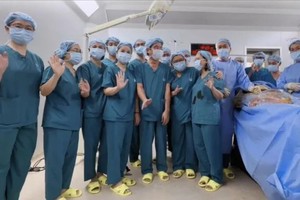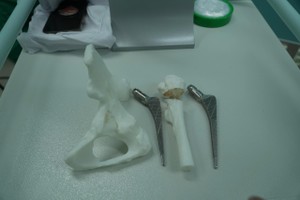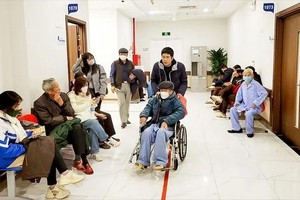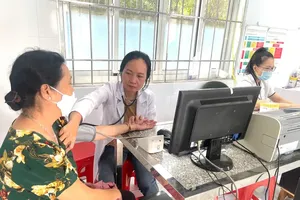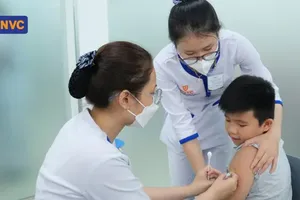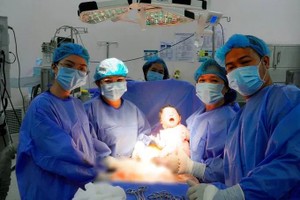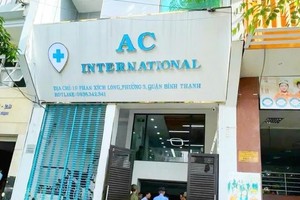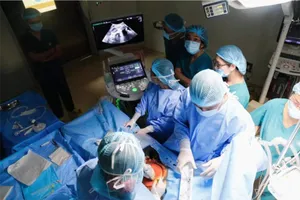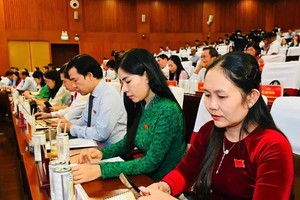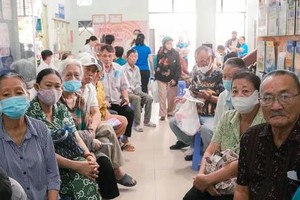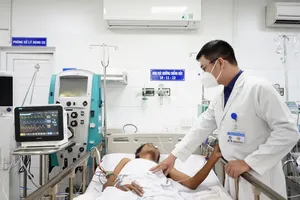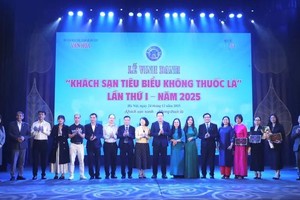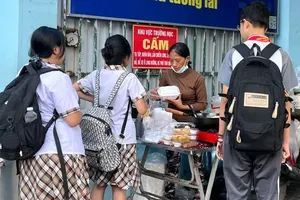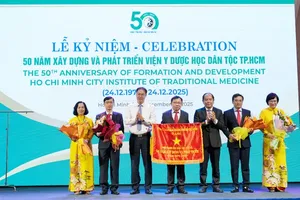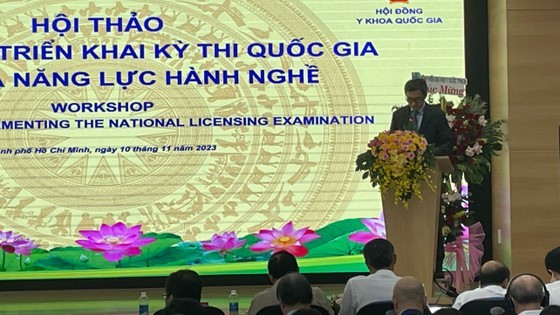 |
At the workshop this morning |
This morning, a workshop 'Implementing the National Licensing Examination' on experiences in implementing the national examination to assess practice capacity was organized by the National Medical Council under the Ministry of Health to share experiences of implementing professional examinations to assess practice capacity in other countries around the world. At the workshop, participants also voiced their opinions on orientation and plans which the council will implement soon.
Speaking at the conference, Professor Tran Van Thuan, Deputy Minister of Health cum Vice Chairman in charge of the National Medical Council, said human resources, especially in the medical sector, always play an important role. Vietnam is currently integrating with the world and being a member of the World Trade Organization, Vietnam must comply with agreements, including regulations on medical services.
On the other hand, along with joining the ASEAN community, Vietnam has signed mutual recognition agreements including Mutual Recognition Arrangement on Medical and Dental Practitioners which is issued by authorities in one country and will be recognized by other member states in the region.
Thus, Professor Tran Van Thuan emphasized that Vietnam needs to have regulations on licensing to ensure compatibility and compliance with international and regional practices, to fit the current context of international integration.
In particular, the regulations will create conditions for the mobility of medical and dental practitioners from other countries to Vietnam to participate in medical examination and treatment activities and vice versa, Vietnamese practitioners can practice abroad. Vietnamese medical workers can integrate more with countries in the region as well as the world.
According to Associate Professor Luong Ngoc Khue, Vice Chairman of the National Medical Council cum Director of the Department of Medical Examination and Treatment Management under the Ministry of Health, during the process of developing the Law on Medical Examination and Treatment, the Ministry of Health proposed the Government and the National Assembly to take the content of assessment of practice capacity into law into account for the granting of a license to practice medicine.
Specifically, in Article 25 of the Law on Medical Examination and Treatment 2023, the National Medical Council is assigned to promulgate a set of tools to assess practice capacity and organize exams to assess practice capacity for doctors, nurses, and medical technicians from 2027.
According to Associate Professor. Luong Ngoc Khue, the National Medical Council and professional examinations should serve foundation for granting practice licenses which have been applied by most countries around the world. He added that through reviewing the experience of 23 countries around the world, this model is applied in the majority of underdeveloped, developing countries and even developed countries of the commonwealth.
Meanwhile, Vietnam is one of the three countries with the simplest conditions for licensing to practice in Southeast Asia.
According to statistics from the Ministry of Health, in Vietnam, there has been a rapid expansion in the number of health training institutions and graduates in the last two decades. Over 95,000 doctors and over 106,000 nurses have graduated from health training facilities over the past two decades.

